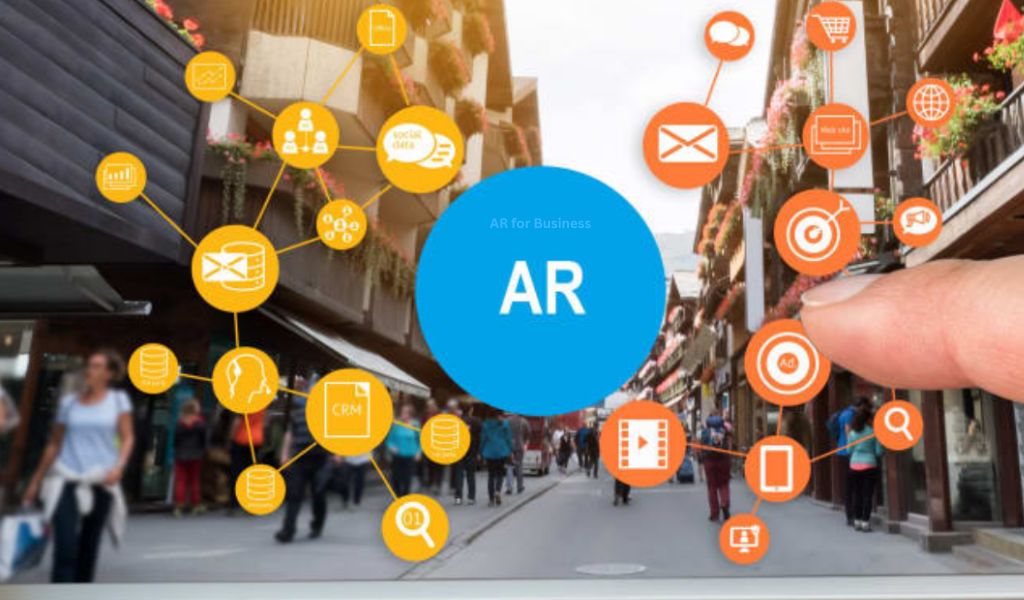Is there a magic pill that would make your company thrive? For instance, augmented reality (AR) is a technology well-known for creating outstanding experiences. Even though it’s not a panacea to all corporate challenges, AR is undoubtedly a vital component of your company’s growth strategy. Moreover, it can transform the operation of important institutions like education and healthcare.
So, what exactly can augmented reality do for your business? This article will shed light on how a professional AR development company can drive your company to success. We’ll also explore the benefits of AR for enterprises and tips for leveraging this technology. Let’s dive in!
Benefits of Augmented Reality for Business
The use of AR in business can provide many benefits, so many companies use the services of an experienced software development company to build their corporate solutions. Below are some of the most common advantages of AR for businesses.
- Enhanced customer experience. AR technology can be used to create more engaging, immersive customer experiences. For example, AR can be used to provide virtual tours of products and services, as well as detailed product information.
- Improved customer engagement. AR can help businesses engage customers in new ways, standing out among competitors. For example, companies can use AR to create interactive experiences that customers can participate.
- Increased sales. Businesses can use AR to create interactive experiences that entice customers to purchase. According to the Eclipse study, 71% of shoppers said they would shop more often if they could use AR technology.
- Better insights on customer behavior. AR can provide businesses with valuable data on specific customer behavior and preferences. By tracking customer interactions with AR products and services, specialists can explore their customers from within and develop more efficient solutions to engage them even more.
- Reduced costs. AR can help to reduce costs by automating specific processes, such as customer service, warehouse work optimization, work inspection, etc. Additionally, businesses can use AR to reduce training costs by providing employees with interactive training experiences.
Tips for Leveraging Augmented Reality
Once you have developed an AR strategy, you will need to take steps to ensure that you are leveraging AR most effectively. Here are some tips to make it the right way:
- Focus on quality. Ensure that an AR experience serves essential customer/corporate needs and looks inviting to users. Also, pay special attention to AR app testing to prevent customer loss because of critical bugs.
- Make it interactive. AR experiences should be interactive and engaging for users. Thus, add more funny features, animation, and VFX for a stronger impression.
- Consider user experience. Before going to AR app development, study the behavioral particularities of your target audience. Then, ensure that your interface is intuitive and that all the features are easy to use.
- Keep it relevant. Regular updates and new feature implementation will make your old users stick around for longer and draw you new ones.
- Leverage data. Gather more data on your target audience and utilize these insights to your advantage when creating AR experiences. This will help you make more targeted and personalized experiences.
Examples of AR in Business
AR is being used in a variety of industries to create engaging experiences. Here are some examples of how businesses are leveraging AR.
Retail
Retail businesses are using AR to create interactive shopping experiences. For example, IKEA has created an AR app that allows customers to virtually “try on” furniture in their homes before making a purchase.
Healthcare
Healthcare providers are using AR to help train medical professionals and improve patient care. For instance, AR is being used to help medical students learn anatomy and practice surgical procedures.
Manufacturing
With AR, the manufacturing process can be more efficient. This technology can improve the accuracy of assembly line workers and reduce errors.
Education
AR solutions for education include the ability to create interactive learning experiences in classrooms and labs. Thus, some establishments use AR to conduct immersive virtual field trips.
Tourism
Thanks to augmented reality, museums can conduct virtual tours and provide detailed information about exhibits. AR also allows internet users to visit other countries and get outstanding experiences like riding roller coasters or bungee jumping.
To Sum Up
In conclusion, AR can provide many benefits for businesses, from enhancing customer experience to providing insights into customer behavior. By developing an AR strategy and leveraging AR most effectively, companies can maximize the benefits of AR and create engaging experiences for their customers.
Overall, AR is a powerful technology that can revolutionize businesses’ operations. If you are looking to leverage AR in your business, consider the tips and examples discussed in this article.




































